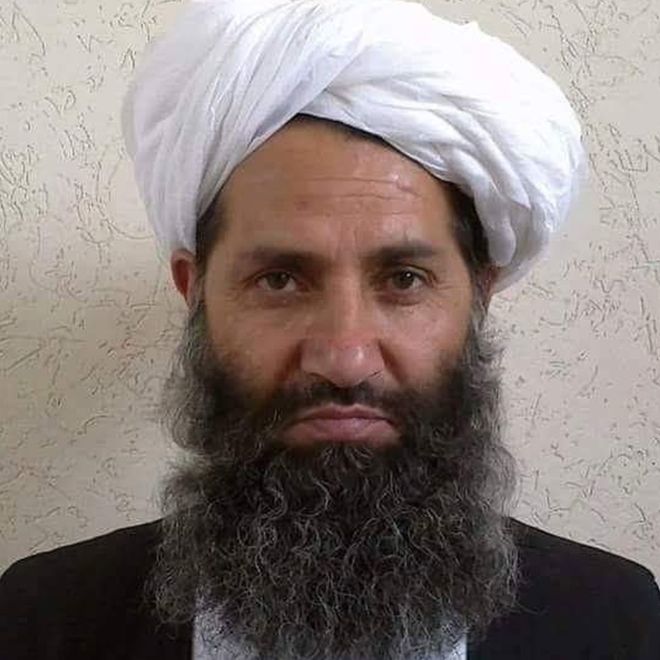Analysis
New Taliban leader likely heralds fresh offenses
To galvanize support the new head of the Taliban, Mawlawi Haibatullah Akhundzada, will need to show his muscle on the battlefield.

The Taliban have a new leader: Mawlawi Haibatullah Akhundzada. He was elected Wednesday, probably in Quetta, Pakistan, by Rabhari Shura, the highest political body of the organization. His appointment comes a few days after the death of his predecessor, Mullah Akhtar Mohammad Mansour, who was killed by an American drone while traveling in Pakistani Baluchistan.
Akhundzada appointed two deputies: One is Mullah Yacub, the son of the historic leader Mullah Omar and head of one of the Taliban Commissions under the leadership of Mansour. Yacub had challenged Mansour’s appointment in July 2015 but ended up supporting him. The other is Sirajuddin Haqqani, son of the founder of the Islamist network of the same name, active since the 1980s and, today, among the most dangerous armed groups operating in Afghanistan and Pakistan, with economic significance clear to the Gulf.
Information about Akhundzada is fragmentary, but there’s enough to understand the reasons for his choice. He’s around 50 years old and was born in the southern Afghan province of Kandahar, the historic stronghold of the Taliban. He’s a member of the powerful Noorzai Pashtun tribes. Some say he fought the Soviets in the ranks of Hezb-e-Islami Khalis; others say he lived in Pakistan between 1979 and 1989, the years of the occupation.
What is certain is that he holds religious credentials, rather than military. In fact, he is an influential cleric specialized in the critical interpretation of the sayings of the Prophet Muhammad. According to Thomas Ruttig, co-director of Afghanistan Analysts Network in Kabul, Akhundzada enjoyed the unconditional trust of Mullah Omar, who consulted him to settle the most sensitive issues.
He held important positions in the justice sector at the then Islamic Emirate of Afghanistan. In subsequent years he used his religious authority to make propaganda, recruit young fighters and mediate conflicts within the movement, such as those, recently, between Mansour’s backers and those of Mullah Rasul, one of the “secessionists” (later arrested by the Pakistanis) who challenged Mansour’s appointment.
With the appointment of Akhundzada — a man of the old guard, known and respected, the symbol of the “Kandahari matrix” from which the movement was born in the ‘90s — the Taliban is aiming for continuity. A figure of “compromise” and mediation. A man who, with his religious authority, can act as glue between the various political groups, in a delicate transition phase that started in July 2015, with the announcement of the death of Mullah Omar.
The big question now is what will happen next. What did Mansour really represent, and what and who represents Akhundzada now? If everything and its opposite was said about the former (that he was Pakistan’s man, and those who killed him were a group of Pakistanis who no longer regarded him as their horse), varying assumptions move around the latter.
Akhundzada’s religious credentials and his Kandahari origin pleads for a choice that, in continuity, should aim to bring together a movement that has always been mixed and has gone through years of feuding and secessions and that now competes with the Islamic State. He is not, however, known for his charisma, and his tribe, however powerful, is less so than others and remains a predominantly local element.
It is unknown what Akhundzada thinks of the negotiation process, nor is much known of his relations with Pakistan. But what is certain is that now, even more than Mansour, he will have to prove he is the boss, the new emir of the believers. As is the logic of guerrilla warriors, to be accepted and to ensure his orders are followed he will have to focus on military victory and demonstrate that Mansour will be avenged.
He therefore needs to rely on Haqqani, the jihadist network that was very close to al Qaeda, to the fringe secret services of Islamabad and the Saudis with whom Haqqani has an old and very firm relationship. If the appointment of Yacub as a deputy aims to prove that the spirit of Mullah Omar is alongside Akhundzada even materially, then Siraj’s figure has a particular relevance on the military level.
So we can expect a new Taliban offensive even though the Afghan Chief of Staff General Qadam Shah Shahim has branded the “Omari” campaign — the so-called Taliban Spring campaign — as a failure. But the failure has yet to be proven: On Wednesday a bus full of Ministry of Justice officers was attacked, killing 10 people.
Originally published at http://ilmanifesto.info/akhundzada-nuovo-leader-talebano/ on 2016-05-26
